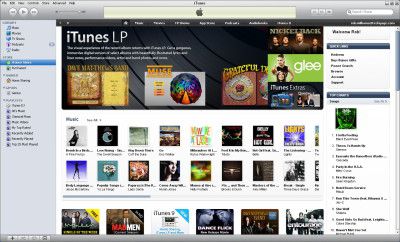From our front-page news:
Regardless of your whether or not you've ever pirated something yourself, or do so on a regular basis, very few people will shun the fact that it's a real problem and has been for a while. It's so large a problem, in fact, that organizations such as the RIAA, MPAA and others use piracy as their number one reason for lost profits. Of course, it'd have nothing to do with the fact that music is usually too expensive, or the fact that they don't exactly cater to their customer in any possible way. No, of course not... it's all piracy.
But did you know that organizations such as the ones mentioned above, and other music/movie companies the world over, are able to earn more revenue off of illegal downloaders, rather than from customers who purchase their music from a store or off of a downloadable music store, such as iTunes? According to recent reports found by TorrentFreak, that 150x estimation isn't made up... that's really how much more music companies can earn by, get this... requesting payment from the suspected downloaders.
How this company works (DigiRights Solutions) is that they offer a service to these companies that will monitor what I assume are just IP addresses from all over the area, keeping track of what's being downloaded. If an illegal download is spotted (I assume it can tell by the filename, and the protocol used), it will automatically send out an invoice of sorts to the suspected customer. How DRS and other similar companies can get the customer's address information so easily, I'm not so sure, but it's scary as heck to think about.
The kicker is this. Although companies such as DRS send out invoices requesting payment, the person receiving it is not legally required to do so. According to information the company gives, however, upwards of 25% of people will just pay it. We're talking about fees that start at €90 and can go into the hundreds. So essentially, music companies can make more money off pirates... by simply asking for the money. It's going to be interesting to see if this kind of practice is even allowed to continue too far into the future. After all, although it's not illegal, per se, I can't see many people approving of sending random and unsubstantiated invoices to customers. If only it were that easy to make money for the rest of us...

DRS says it generally sends out emails to alleged file-sharers requesting them to pay €450 (650$) per offense. According to the company they get to keep 80% of the money, leaving 20% for the copyright holders. The anti-piracy outfit claims it uses the money to cover their IT costs, administration costs, attorney fees and other costs. So, for every illegal download the copyright holder gets €90 (130$), and that is where the presentation turns into a marketing talk where the company explains how piracy can be turned into profit. They start by comparing the profitability of legal and pirated downloads.
Source: TorrentFreak
But did you know that organizations such as the ones mentioned above, and other music/movie companies the world over, are able to earn more revenue off of illegal downloaders, rather than from customers who purchase their music from a store or off of a downloadable music store, such as iTunes? According to recent reports found by TorrentFreak, that 150x estimation isn't made up... that's really how much more music companies can earn by, get this... requesting payment from the suspected downloaders.
How this company works (DigiRights Solutions) is that they offer a service to these companies that will monitor what I assume are just IP addresses from all over the area, keeping track of what's being downloaded. If an illegal download is spotted (I assume it can tell by the filename, and the protocol used), it will automatically send out an invoice of sorts to the suspected customer. How DRS and other similar companies can get the customer's address information so easily, I'm not so sure, but it's scary as heck to think about.
The kicker is this. Although companies such as DRS send out invoices requesting payment, the person receiving it is not legally required to do so. According to information the company gives, however, upwards of 25% of people will just pay it. We're talking about fees that start at €90 and can go into the hundreds. So essentially, music companies can make more money off pirates... by simply asking for the money. It's going to be interesting to see if this kind of practice is even allowed to continue too far into the future. After all, although it's not illegal, per se, I can't see many people approving of sending random and unsubstantiated invoices to customers. If only it were that easy to make money for the rest of us...

DRS says it generally sends out emails to alleged file-sharers requesting them to pay €450 (650$) per offense. According to the company they get to keep 80% of the money, leaving 20% for the copyright holders. The anti-piracy outfit claims it uses the money to cover their IT costs, administration costs, attorney fees and other costs. So, for every illegal download the copyright holder gets €90 (130$), and that is where the presentation turns into a marketing talk where the company explains how piracy can be turned into profit. They start by comparing the profitability of legal and pirated downloads.
Source: TorrentFreak
